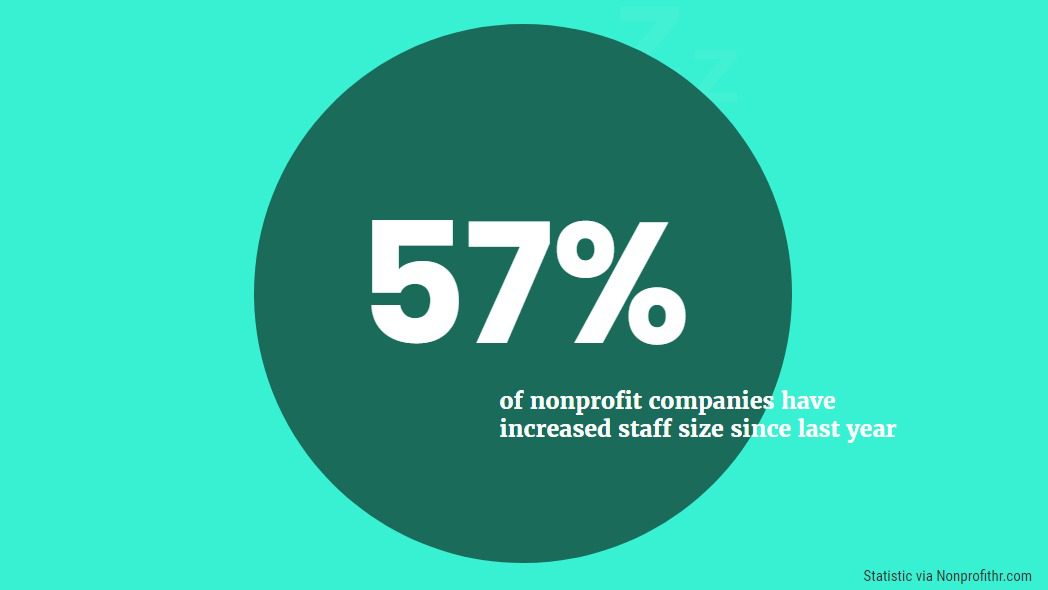In Search of San Francisco’s Best Nonprofit MBA Programs

Even though San Francisco may be thought of as the place to be for entrepreneurship and technology, the city is home to a diverse community of organizations both private and public, both for and not-for-profit.
Business professionals in the city can apply their business acumen and education in a number of ways, whether helping a new venture get on its feet, contributing to some of the largest tech firms in the world, or supporting a mission they’re passionate about. And though such mission-driven organizations center around the cause and not of profit-making, having a strong business leader at the helm is crucial in helping these organizations to achieve their mission.
Students interested in gaining critical operations and management skills to apply in the nonprofit sector may be interested in pursuing an MBA in Nonprofit Management. Professionals with this degree have moved on into major leadership roles in the nonprofit field, whether working as a Nonprofit Program Director, Development Director, or Community Outreach Coordinator. Nonprofit managers are able to flex their muscles in finance, marketing and a number of other areas of business while still focusing their passion on a broader mission of change or aide.
A few business schools in the San Francisco metro area offer the chance for students to focus their MBA in the field of Nonprofit Management, offering a diverse skill set of nonprofit experience combined with a strong business foundation. Below, you can explore the San Francisco MBAs in Nonprofit Management.
San Francisco Nonprofit MBA Programs You Need To Know
Haas School of Business – UC Berkeley
The Haas School of Business at UC Berkeley offers an MBA concentration in Social Sector Leadership through the university’s Center for Social Sector Leadership. Ranked second overall among business schools with a nonprofit focus by U.S. News & World Report, the Haas program trains up-and-coming business leaders to make a social impact and inspire collaboration between sectors.
The Center for Social Sector Leadership offers students a wide variety of courses to take that can help shape various careers in the social sector, such as nonprofit consulting, board leadership, and strategic or financial nonprofit management. In addition to learning inside the classroom, the center also provides a number of opportunities for experiential learning, such as the Berkeley Board Fellows, which places graduate students on nonprofit boards of directors, or the Haas Impact Investing Network, which offers first-hand experience in impact investing for socially-minded MBAs around the country.

San Francisco State University College of Business
The College of Business at San Francisco State University offers at MBA Emphasis on Nonprofit and Social Enterprise Leadership. With the goal of preparing students to take their business skills to mission-driven organizations, the program will teach students to create a coherent organizational vision, apply innovative solutions to address needs, and evaluate the effectiveness of an organization’s programs in meeting goals.
Students in the Nonprofit and Social Enterprise Leadership emphasis will take the core MBA course requirements as well as three courses for their major: Nonprofits, Policy and Society; Innovation for Sustainability; and Seminar in Social Entrepreneurship, or Strategies in Emerging and Developing Economies. Students will also select two electives that can help further shape their education in leadership and creativity.
Stanford University Graduate School of Business
The Stanford Graduate School of Business offers MBA students the opportunity to pursue a Certificate in Public Management and Social Innovation as part of their degree. Through the university’s Center for Social Innovation, MBA students can explore the social sector and prepare for roles as forces for social change throughout the nonprofit, philanthropic, government, or corporate spheres.
To pursue the certificate, MBA students must complete a social innovation experience that allows them exposure to populations affected by a particular social or environmental issue. Students may also work alongside leaders making contributions in the field to fulfill the requirement.
For more on how MBAs are making a greater social impact, check out how these students are making a difference in their own unique way.
Boston’s Essential Nonprofit MBA Programs

Business doesn’t only have to be about flipping a dollar. Some work isn’t about how much money a business makes but, rather, how much change it makes. This is part of the drive behind nonprofits and why some people dream about leading one.
Nonprofits provide rewarding work, and they’re right down the alley for those who believe in social change and people who don’t want the influence of corporate money. The nonprofit sector is a surprisingly huge as well, employing more than 10.7 million employees in the U.S. alone. Luckily, many schools have recognized the need for a proper education in this field. After all, nonprofit business is a particular kind of model, and it requires a particular kind of knowledge.
So why not learn the ropes in Boston? It’s not far from Washington DC, either, for those interested in policy work. It’s also a short ride to New York City, where there are more than 35,000 nonprofits. The state of Massachusetts offers roughly the same number, to put it into perspective, but the Massachusetts Nonprofit Network offers the state a unique resource to help connect nonprofits with funders and elected officials.
If Boston is the right city for you, here are three schools that offer competitive nonprofit MBA programs.
Questrom School of Business – Boston University
This MBA goes by another name: Social Impact MBA. Boston University’s Questrom School of Business program is one of a kind. It’s formerly known as the Public & Nonprofit MBA, but this name suits it better. The program’s key skills are marketing, public policy, and financial management—the ingredients to a boss nonprofit.
The program shares the same curriculum as the school’s full-time MBA and then some. The required social impact course is titled Fundamentals of Nonprofit Management. Electives will help students better concentrate their skills on areas they want. If you want to work in Latin America, Questrom’s got a class for that. Sustainability strategy? Yup. And even a course that teaches the importance of a mission.
D’Amore-McKim School of Business – Northeastern University
Northeastern University‘s College of Professional Studies offers a Masters of Science in Nonprofit Management on the Boston campus. While separate from the D’Amore-McKim School of Business, this program certainly gives the same business appeal from the business school.
The program comes in two sizes: full-time and part-time. Most students complete it between one and a half to two years. The school states, “Integrating theoretical approaches with practical applications, the Master of Science in Nonprofit Management prepares you for a leadership position in a not-for-profit university, hospital, charity, foundation, or religious organization.”
READ MORE: Which Boston MBA Programs Offer the Best Return on Investment?
Northeastern students can walk away with skills like fundraising, legal literacy, grant writing, and more. There are seven concentrations to choose from: global studies, human services, leadership, organizational communication, project management, social media and online communication, and sport and social change.The program costs roughly $30,000, and 11 percent of students receive financial aid.
Sawyer Business School – Suffolk University
Suffolk University has many different MBA program offerings, including a healthcare MBA, an executive MBA, and, of course, a nonprofit MBA. This specialty degree will teach students how to successfully lead a nonprofit. Seated within the Sawyer Business School, which has been around since 1937, the program includes a number of interesting courses.
One featured course is on law and ethics, with another on public service communication, as well as a vital grant writing course. The program costs $1,424 per credit and can require anywhere from 45 to 58 credits. Students will be working out of downtown Boston with easy access to businesses conducting nonprofit work daily.
Toronto’s Best Nonprofit MBA Options

It’s fair to say that the finance and consulting industries are the most popular for business school grads. But what about non-profits and social enterprises—where do they rank? While some assume that an MBA and working for a nonprofit do not go hand-in-hand, that’s not the case. Continue reading…
Top 10 Nonprofit MBA Programs

If you want a job that doesn’t just pay the bills but impacts the world, then working for a nonprofit corporation is the way to go. The nonprofit sector is the third-largest segment of the U.S. workforce, according to Fast Company, employing more than 13.7 million people at 1.8 million agencies. It accounts for a total of 10% of the nation’s workforce with assets reaching nearly $3 trillion. Continue reading…
